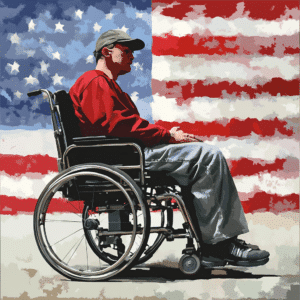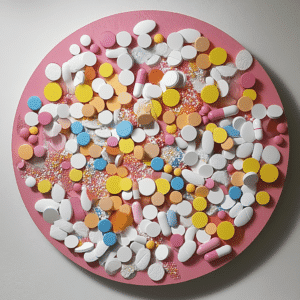Navigating parenthood is challenging, but nothing prepares you for the emotional rollercoaster of dealing with a child’s addiction. The journey is fraught with heartache, confusion, and a constant battle between hope and despair. Coping with an addicted child requires building resilience, seeking supportive communities, and staying well-informed. This comprehensive guide provides insights, practical advice, and real-life stories to help you navigate the stormy waters of having a child struggling with addiction.
Understanding Addiction: The First Step Toward Coping
Before delving into practical tips, it’s crucial to understand what addiction is. Addiction is a chronic disease characterized by compulsive drug seeking and use despite harmful consequences and long-lasting changes in the brain. This knowledge can help demystify your child’s behavior, foster empathy, and make coping with an addicted child a bit more bearable.
Real-Life Example: Betty Ford’s Compassionate Approach
Betty Ford, the former First Lady of the United States, battled her own addiction and later founded the Betty Ford Center. Ford’s journey illustrates the transformative power of understanding and compassion in addressing addiction. By treating addiction as a disease rather than a moral failing, she reshaped public perception and provided solace to many suffering families.
Top 7 Encouragement Tips for Coping with an Addicted Child
1. Educate Yourself on Addiction and Recovery
Knowledge is power. Familiarize yourself with the latest research on addiction, treatments, and recovery processes. Resources such as the National Institute on Drug Abuse (NIDA) and books like “Clean: Overcoming Addiction and Ending America’s Greatest Tragedy” by David Sheff can be invaluable. Understanding the financial impact Of addiction can also prepare you for the challenges ahead.
2. Establish Boundaries and Stick to Them
Setting and maintaining clear boundaries is essential for your well-being and your child’s. Boundaries help create an environment where recovery can thrive and prevent enabling behaviors. Respect your mental and physical limits, and communicate these boundaries to your child clearly and consistently.
3. Seek Support from Professionals
Engage with health care professionals, therapists, or counselors specializing in addiction. Programs like those offered by the Hazelden Betty Ford Foundation provide comprehensive care and support for both the addict and their family. Dr. Nora Volkow, Director of NIDA, underscores the importance of professional intervention in managing addiction, offering hope through scientific advancements and specialized care.
4. Join Support Groups
Connecting with other parents facing similar challenges can be therapeutic. Social media and online forums can be an excellent place to start your search for local support groups like Nar-Anon and Al-Anon. These organizations offer support groups specifically for families affected by addiction, fostering a community of shared experiences and understanding.
5. Take Care of Your Mental and Physical Health
Your well-being is crucial. Engage in activities that nurture your mind and body, such as exercise, hobbies, or meditation. Remember, you can’t pour from an empty cup. The importance of self-care can’t be overstated when dealing with the stress of having an addicted child. For instance, Sheryl Sandberg, COO of Facebook, turned to yoga and mindfulness following personal loss and trauma.
6. Develop a Contingency Plan
Prepare for emergencies that may arise due to your child’s addiction. Have contact information for healthcare providers and support services on hand to ensure prompt action when needed. Creating a solid plan can save precious time during a crisis, providing a little peace of mind in uncertain times.
7. Cultivate Patience and Maintain Hope
Addiction recovery is not a linear path but a journey filled with ups and downs. Patience and hope are powerful allies. Celebrate small victories and progress, no matter how minor they may seem. Remember, while the road to recovery can be long, every positive step forward counts.
| Aspect | Description | Actionable Steps |
| Communication | Encourage open dialogue to help your child express their feelings and thoughts. | – Ask questions about their feelings. |
| – Listen actively without judgment. | ||
| – Reassure them they can come to you anytime. | ||
| Support Systems | Online forums and social media can connect you to local support groups. | – Search for local addiction support groups online. |
| – Join relevant online communities or forums. | ||
| Counseling | Therapy can provide a safe space for the family to discuss addiction impacts. | – Consider family therapy sessions. |
| – Look for specialized addiction counselors. | ||
| Emotional Consequences | Children may experience anxiety, fear, depression, guilt, shame, loneliness, confusion, and anger. | – Address emotional turmoil with compassion. |
| – Monitor for signs of severe psychological distress and seek professional help if needed. | ||
| Developmental Impact | Addiction can cause significant developmental, social, and interpersonal issues. | – Promote healthy social interactions. |
| – Engage in activities that encourage positive development. | ||
| Family Dynamics | Addiction affects the whole family, leading to stress and strained relationships. | – Practice open and honest communication as a family. |
| – Establish and maintain family routines and structures. | ||
| Self-Care for Parents | Taking care of your own emotional and physical well-being is essential. | – Engage in self-care activities. |
| – Seek support from friends, family, or professional counselors. |
Real-Life Stories of Hope and Recovery
Brandon Novak’s Inspiring Transformation
Brandon Novak, a former professional skateboarder, has been open about his struggle with addiction. His transformation from a heroin addict to a motivational speaker highlights the possibility of recovery and the importance of never giving up on your child. Novak’s journey proves that change is possible and serves as a reminder that perseverance can yield profound results.
Betty Ford Center: A Legacy of Hope
The Betty Ford Center has helped thousands of individuals and families navigate the treacherous waters of addiction. The center stands as a testament to the fact that recovery is always possible, providing a beacon of hope for families everywhere. The center’s holistic approach emphasizes the importance of treating the whole person, not just the addiction.
Nurturing Strength and Resilience Through the Journey
Coping with an addicted child demands immense strength, resilience, and unwavering hope. The journey is arduous, but utilizing effective strategies and finding encouragement in the stories of those who’ve walked similar paths can provide solace and direction.
Investing in self-care, seeking professional help, staying educated, and maintaining support systems contribute significantly to managing the tumultuous experience of having a child with addiction. As you embark on this challenging path, remember that every step, no matter how small, is progress toward your child’s recovery and your family’s healing.
By embracing understanding, resilience, and hope, you can foster an environment conducive to recovery while safeguarding your emotional and physical well-being. The journey may be long, but the possibility of a brighter future for your child makes every effort worthwhile. Coping with an addicted child is never easy, but with the right support and strategies, you can navigate these difficult waters and move towards healing and recovery.
For comprehensive support, visit Mothers Against addiction and gain access to valuable resources and a supportive community.
Coping with an Addicted Child: Encouragement Tips
Dealing with an addicted child can be a challenging journey, but with the right support and information, you can find ways to ease this struggle. Knowing some intriguing trivia and useful facts can provide a bit of comfort and encouragement during these trying times. Let’s dive into some insights that may help you along the way.
Finding Strength in Numbers
It’s often comforting to realize you’re not alone. Did you know that a significant percentage of parents dealing with addicted children find strength in community support groups? These groups offer a sense of belonging and shared experiences, much like the way understanding What Does Roi mean can give clarity to financial investments. Supporting each other in these communities can greatly impact your mental and emotional well-being.
The Ripple Effect of Addiction
Addiction doesn’t only affect the individual; it can create a ripple effect through families. Divorce rates, for instance, can be influenced by the stress and emotional toll of addiction, as explored in studies regarding Divorce And addiction. Understanding these broader consequences can help you grasp the extensive impact addiction has, encouraging a more comprehensive approach in coping.
Fun Facts That Might Lift Your Spirits
Here’s a little-known fact: selling a car can be a symbolic way to move forward during tough times. Maybe it’s selling a car that carries difficult memories. Websites like Cazoo sell My car provide easy, hassle-free solutions for such needs. Sometimes, small acts like these can offer a surprising amount of relief and a fresh start.
Parents often find respite in focusing on manageable tasks, such as understanding financial terms. For example, learning about cost basis meaning can be a productive distraction, giving a sense of control over one’s financial situation amidst the emotional chaos. Similarly, understanding the role of an escrow officer when dealing with property matters can lay the groundwork for a more secure and stable future.
Engaging with these various aspects can not only offer a welcome diversion but also equip you with useful knowledge that might come in handy. Remember, the journey of coping with an addicted child is not linear, but every step of understanding and support can make a significant difference.
What are the 4 stages of addiction for kids?
Kids often experience a progression when dealing with addiction. Initially, there’s experimentation, where they first try substances. Then comes regular use, followed by risky use where their behavior starts affecting their life negatively. Finally, it can develop into dependency and addiction, where they feel they can’t live without it.
How to talk to an addicted child?
When talking to an addicted child, it’s important to ask open-ended questions and encourage them to share their feelings and experiences. Let them know you’re there to support them and they can come to you with any questions or worries whenever they need.
What can families do to cope with a loved one’s addiction?
Families coping with a loved one’s addiction should consider seeking support from social media and online forums dedicated to this issue. Booking a family therapy session can also be beneficial to foster open and honest conversations about the challenges of managing addiction within the family.
What are the emotional effects of addiction on children?
Children affected by addiction often experience anxiety, fear, depression, guilt, shame, loneliness, confusion, and anger. These emotions can have significant developmental, social, and interpersonal impacts, even if they don’t lead to diagnosable conditions.
What are the four C’s of addiction?
The four C’s of addiction are craving, loss of control, compulsion to use, and continued use despite the consequences. These elements highlight the grip addiction can have on someone’s life and choices.
What are the 4 D’s of addiction?
When breaking a child’s device addiction, setting clear and consistent usage boundaries is crucial. Encourage alternative activities that don’t involve screens and be a role model with your own device usage.
How do you break a child’s device addiction?
Addiction in kids can be triggered by various factors, including peer pressure, stress, underlying mental health issues, and exposure to addictive behaviors in their environment.
What causes addiction for kids?
Signs of addictive behavior in children include spending excessive time on activities like gaming or social media, neglecting responsibilities, withdrawing from family and friends, and becoming irritable when they can’t engage in the activity.
What are the signs of addictive behavior in children?
Living with an addict often involves dealing with instability, unpredictability, emotional turmoil, and sometimes financial strain. It can be incredibly challenging and emotionally exhausting.
What is it like living with an addict?
The Sinclair Method involves taking naltrexone before drinking alcohol to reduce the pleasure derived from it, gradually diminishing the urge to drink and aiding in recovery from alcohol dependence.
What is the Sinclair method?
Common codependent behaviors in families with addiction include enabling the addict’s behavior, neglecting one’s own needs to cater to the addict, and having difficulty setting and maintaining boundaries.
What are three codependent behaviors in families with addiction?
Children impacted by addiction might struggle academically, experience emotional distress, and develop trust issues in relationships due to the instability in their lives.
What are three ways children can be impacted by addiction?
A parent’s addiction can lead to feelings of neglect, insecurity, and embarrassment for a child. It often creates an unstable home environment that affects their emotional and social development.
How does a parent’s addiction affect a child?
Addiction can indeed have a genetic component, meaning if a parent has struggled with addiction, their children might have a higher risk of facing similar issues due to inherited traits.
Is addiction genetic?
The four stages of change in addiction are precontemplation, where the individual may not recognize the problem; contemplation, where they start thinking about change; preparation, where they plan for change; and action, where they actively work on changing their behavior.
What are the 4 stages of change for addiction?
The four stages of recovery include withdrawal, characterized by the initial struggle with quitting; honeymoon, where they feel hopeful and positive; the wall stage, which involves facing deeper emotional issues; and adjustment, where they adopt a new, healthier lifestyle.
What are the 4 stages of recovery?
Substance abuse patterns include experimental use, regular use, risky use, and dependence. Each stage indicates a deeper level of involvement with the substance.
What are the 4 patterns of substance abuse?
When explaining addiction to a 4-year-old, keep it simple. You might say that sometimes people get sick because their bodies start wanting something that’s not good for them, and it makes them act differently or feel bad. Use age-appropriate language and reassure them that they’re safe and cared for.




























